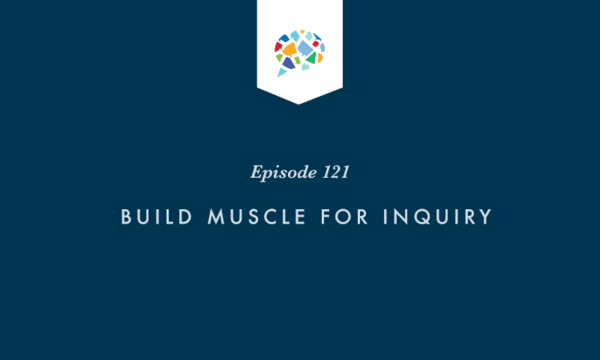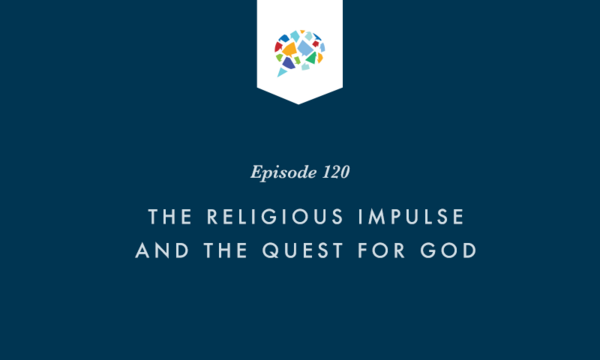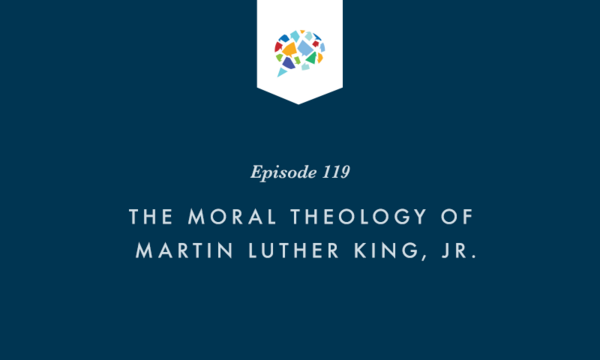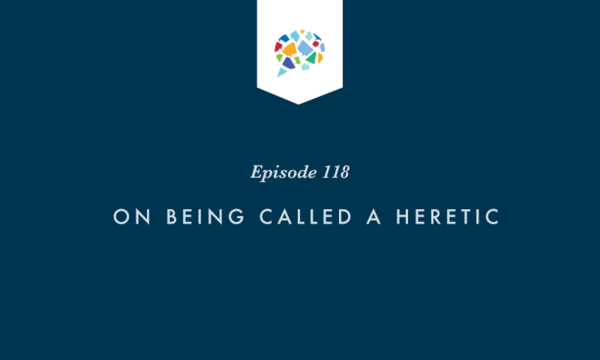Tim and Rick were recently quoted in a recent Christianity Today article on how to help Evangelicals navigate political tensions with this upcoming presidential election. Read the full article below:
How Can Evangelicals Navigate Political Tensions? Practice.
Daniel Breed has heard all the politics-related horror stories: members leaving their small groups, new cliques forming, churches splitting entirely. So the Presbyterian pastor isn’t taking chances with his flock this year.
Emmaus Road Church in Appleton, Wisconsin, draws in around 200 faithful on a Sunday. It’s a mostly conservative Presbyterian Church in America (PCA) church; some congregants sport Donald Trump campaign signs on their cars or lawns, and others voted for Joe Biden in 2020.
Beyond the one-on-one conversations that crop up during the campaign, Breed hosts a faith and politics class in the months ahead of Election Day. Every other week, participants gather at their new church building downtown to share a meal, then divide into classrooms. They discuss historical instances of evangelical involvement in politics, examples of faithful Christian engagement, and ideas for how to interact across the political aisle. People need a place to process the fear and anxiety surrounding political issues, and Breed believes the close-knit church community is the right testing ground for listening and asking questions. “I think it’s because we built a lot of social capital,” he added. “I haven’t had anyone leave because of these issues.”
Breed thinks churches need to be direct about these kinds of conversations and hopes more will see that, even though members “might have differing opinions, it’s possible to do that and stay together.”
Researchers are finding that polarization is currently at a height in modern history, with Americans less likely to hold a mix of liberal and conservative views and more likely to be entrenched in partisan camps.
By the last presidential election, nearly 80 percent of Americans had “just a few” or no friends across the political aisle, according to a Pew Research Center survey. Researchers have also found that people’s partisanship leads them to perceive others as “more extreme” than they actually are, leading to negative views not just of the opposing political party but also of the voters who identify differently than themselves. And those who manage to keep across-the-aisle relationships often find they can do it only by barring political discussion entirely: Nearly half of Americans have stopped talking politics with someone due to differences.
But more evangelicals like Breed are done accepting the polarization in their pews and are calling on their fellow church members to engage with rather than avoid the issues that divide them. In the aftermath of tensions surrounding the 2020 election, this year’s race has seen a batch of organizations offering mediators, curricula, and other resources to combat polarization. Some groups, like The After Party, are new and explicitly evangelical. Others, like Essential Partners, date back decades and are seeing there is fresh interest in their offerings due to today’s divisions.
You Are the Light of the Public Square (Justin Giboney)
In places where people are willing to lean into tough conversations, experts said they’ve seen encouraging results. Essential Partners is one of these groups. It offers coaching, mentoring, and facilitating dialogue on particularly fraught topics — essentially, divorce proofing institutions. The organization isn’t explicitly religious but has worked with denominations and faith-based groups.
John Sarrouf, a Christian and a co-executive director at Essential Partners, has had plenty to do the last several years. He’s helped churches face local issues related to congregational merges, church summer camp programming, and COVID-19 policies. Currently, he’s seeing issues crop up around politics and the war in the Middle East.
Sarrouf has found two main reasons churches bring in organizations like his. About 30 percent of the time, it’s “inspiration.” They want to “get better at living together.” Then there’s the other 70 percent: “desperation.” “Something has come up that’s really threatening that congregation or the denomination and their ability to live and work and worship together,” he said. Conflict and polarization “flattens people,” Sarrouf explained. Suddenly, people go from Bible study partners and church committee friends to opponents. Eventually, stubborn polarization leads to people simply leaving.
“A lot of churches su_er from that. When there’s a conflict, there’s a divide. People stop showing up. Not because they don’t love the church,” Sarrouf said, “but it’s really exhausting to be in a toxic, polarized space like that.”
An important component of his work is to help people “rehumanize” their neighbors or fellow church members who are on the other side of a conflict. He nudges them to remember, That person was the first to show up with food for dinner when my mom was sick. Or That person who votes differently is the person in the choir who helps keep me on pitch.
Leaders can see changes in congregational interactions. People go from standing with stiff postures and avoiding eye contact to leaning in, smiling, and nodding. “It’s really life-changing for people,” he said. “People can get back to doing the important work that they want to be doing in a community.”
3 Principles for Settling Political Spats in the Church (Daniel K. Williams)
Sarrouf said he’s seen communities who have participated in resources like his have more tools to navigate conflicts well in the future and “become incredibly resilient to the next impulse or opportunity for division.”
“We tend to train people to do this themselves,” he said. “It’s not their first conflict. It won’t be their last. They have to learn how to do this and own it and make it a part of their everyday lives—so that it becomes just how they live together.”
Last month, a coalition of evangelical leaders released the statement “Our Confession of Evangelical Conviction,” which seeks to remind Christians what they have in common theologically even as people are divided politically. (Signatories include Christianity Today editor in chief Russell Moore.) Some churches plan to read the document publicly. Moore is also a part of The After Party, a six-week video course launched this year that focuses on how Christians can develop a “Christ-centered political identity.”
Since it came out in April, The After Party’s program has been used by around 75,000 people through conferences, books, training for pastors and lay leaders, and small groups, according to The Washington Post.
Another group, the Mending Division Academy, established last year, has a particular focus on pastors whose churches are struggling with divisions. The organization is headed by Napp Nazworth, who resigned from The Christian Post in 2019 due to disagreements over a pro-Trump column. The group’s curriculum deals with everything from misinformation to polarization to deconstruction.
Bob Roberts, a Baptist pastor in Keller, Texas, has seen polarization on some extreme levels in his work overseas in Vietnam and Afghanistan. In addition to pastoring, he’s been involved in religious freedom advocacy and interfaith work abroad, which has heightened his concern over infighting among Christians at home. “We’ve dealt with extremists around the world. Sorry to say we now have them in our own country,” he said. “And once somebody is truly radicalized in how they think, not just the actions they carry out, it’s incredibly hard to shift them. The most important thing to do is to get upstream of that and deal with it before they’re radicalized.” Roberts wants to start with some concerning ways Christians talk to each other: How can you be a Christian and vote for this candidate? Or that candidate? You must not be a Christian if you vote for this candidate or that candidate.
10 Prayers for a Volatile Election Season (Kimberly Deckel)
Roberts cofounded the Multi-Faith Neighbors Network, a group that brings together pastors, imams, rabbis, and leaders from various faith groups to foster peace in their communities and combat radicalization and polarization. His group has already worked with around 500 people and had several hundred download online resources.
One resource he uses for churches is the Peacemaker’s Toolkit. It explores how the Bible handles peacemaking and moves to how everyday Christians can practice this with each other. One small tool involves is pocket-sized cards with best practices: how to refrain from bad mouthing others on social media, how to verify information online, and how to listen well to people despite disagreeing with their point of view.
Left unaddressed, polarization spreads to a host of other issues—including weariness among younger generations toward politics and church spaces. “One of the reasons they’re leaving is they’re just sick of how Christians talk to each other, particularly Christian leaders,” said Biola University professor Tim Muehlhoff. “A lot of the young generation, they’re done with the argument culture. They’re like, ‘I can’t do that. … I’m not demonizing the other political party.’” Muehlhoff asked a group of students how many of them had stopped talking to a friend or family member due to political disagreements. Half of his class raised their hands.
Muehlhoff and fellow professor Rick Langer have asked Biola students to lean into these hard conversations. The two professors partnered with Pomona College, a private liberal arts school, as part of a group called Bridging the Gap, which pairs conservative universities with liberal ones to have one-on-one discussions. Biola students have also participated in a program called Unify America, which sets up Zoom calls between political opposites.
Participation in these projects has at times garnered criticism from fellow Christians or concerned parents, who have accused the professors of being “all winsome, no convictions.” Parents have worried that participation in the Zoom conversations would negatively impact their children’s faith.
How Can Older Believers Better Support Gen Z? (Claire Nelson; Olivia Voegtle; Elijiah O'Dell; Hannah Davis)
Muehlhoff said one student told him, “I don’t think anybody trusts our faith. Everybody thinks we’re so fragile. Like, one call and we’ll walk away from the faith.” Nearly all the students are scared going into the discussion, Muehlhoff said. But they leave exhilarated.
Much of each call is spent finding areas of common ground—unreasonable professors, too much homework, plans for summer break. By the time the students get to the hard questions at the end—one example was discussing their definitions and views on marriage—they’d already established the camaraderie necessary to have a respectful discussion.
The students told him they left the conversations encouraged by being able to share their own views and learning about someone else’s. “Good, because you’re all doing it again,” Muehlhoff told the students. “I signed you up for a second one.”
Their work goes beyond the classroom. The two former pastors have also authored books on disagreeing well and combating cancel culture and now helm Biola’s Winsome Conviction Project, which seeks to help Christians counter polarization and unhealthy ways of communicating. The project does this through weekend church retreats, public forums, events, workshops, and small groups. They tackle hot button issues, from abortion to sexuality. Basically anything, Muehlhoff said, that “is just splitting communities and churches.” The project sprang out of the “concern that we just lost the ability to talk to each other as Christians,” he explained.
Too often, the church has added to the division rather than providing an alternative model for engaging with both non-Christians and fellow Christians, Muehlhoff said: “People are splitting over preferred pronouns. They’re splitting over Black Lives Matter. They’re splitting over … whether to have a smoke machine during worship.”
But often, just under the surface are the real concerns: The dispute over the smoke machine, Muehlhoff explained, represented to some members evidence that liberalism was infiltrating their church. Some pastors are worried that proactively engaging these issues will lead to more problems. “The sentiment is ‘I’m not opening this can of worms because, quite frankly, I don’t know if our church will survive,’” Muehlhoff said. They think that “politics will do us in.”
25 Precepts for This (and Every) Election (Bonnie Kristian)
But faith leaders may underestimate the appetite regular people in the pew have for talking about these issues. At one event in 2022 in Washington, Winsome Convictions set up chairs for an expected 250 people. Almost 600 Christians from area churches ended up coming, including many walk-ins.
At that same session, Muehlhoff recalled a woman coming with her adult son. The two had not spoken in two years over political disagreements, but the mom begged her son for one last favor: to come to the Winsome Convictions event. At the end, the son stood up during a testimonial session and said participating had led to the best conversation he’d had with his mom in a decade.
Breed also hopes that more Christians will lean into these discussions via formal curricula or one-on-one discussions in their churches rather than simply leave spaces where they don’t agree. “My opinion is, if you can’t get along with Christians and you have to go somewhere else, those churches aren’t gonna last very long either,” he said. And he thinks faith leaders will increasingly have a role to play.“
The voices that their congregation is hearing outside of the gospel are going to be very, very loud. They are going to say things such as ‘This person is going to be the end of the republic. If you vote for this person, it’s going to be the end,’” Breed said. “They’re going to be hearing those voices loud. The question is, will they hear the gospel louder?”
 Biola University
Biola University




